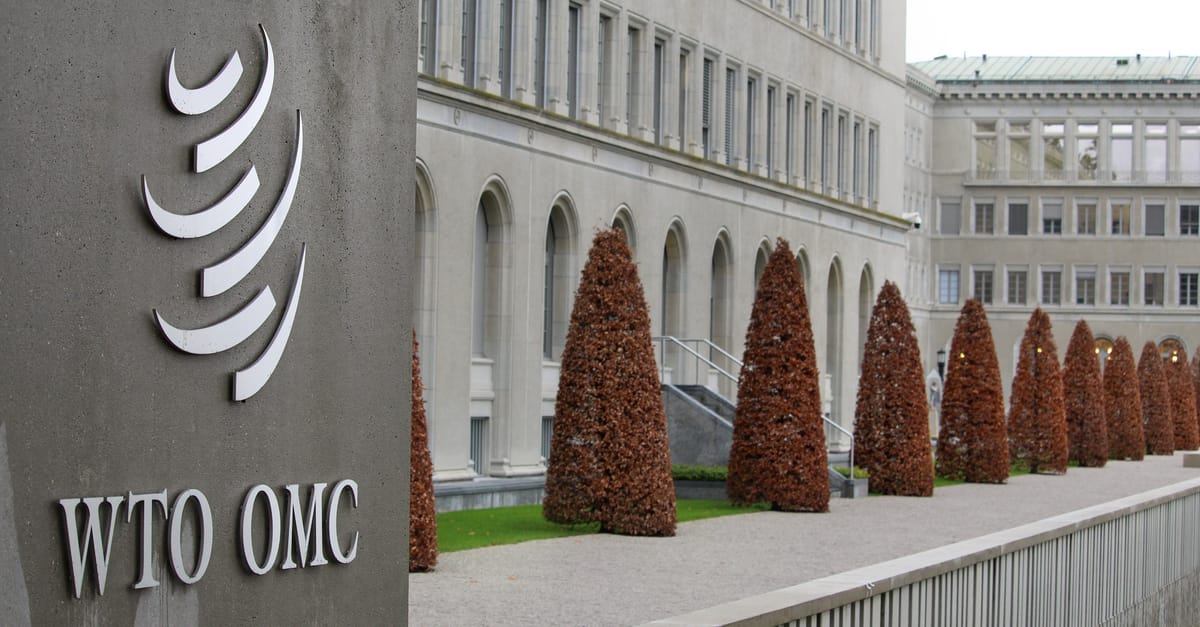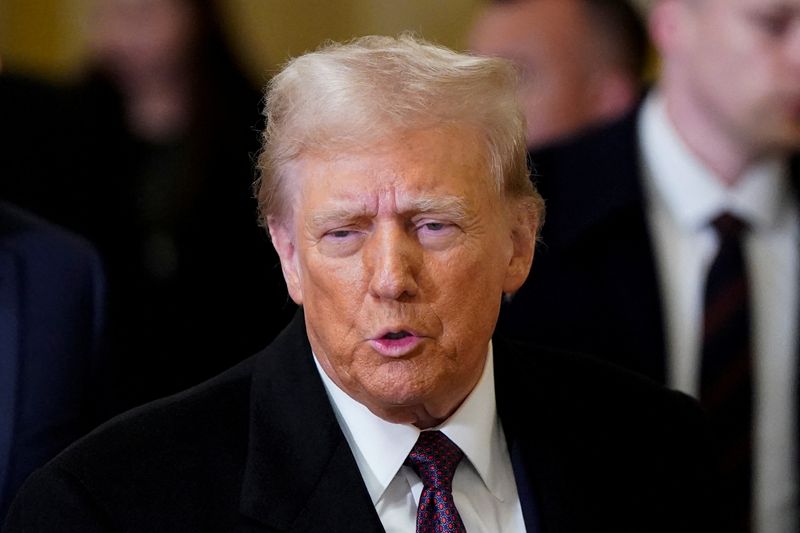Key Takeaways:
I. The economic impact of escalating trade restrictions is substantial, threatening global GDP, disrupting supply chains, and fueling inflationary pressures, with developing countries bearing a disproportionate burden.
II. The resurgence of protectionism is fueled by a complex interplay of geopolitical tensions, national security concerns, domestic economic pressures, and the rise of regional trade agreements.
III. Strengthening the WTO, fostering international cooperation, promoting fair trade practices, and embracing technological innovation are essential for navigating the new trade order and building a more resilient and inclusive global trading system.
The World Trade Organization's latest trade monitoring report reveals a concerning trend: a sharp escalation in trade-restrictive measures implemented by member countries. This rise in protectionism, observed between mid-October 2023 and mid-October 2024, stands in stark contrast to the simultaneous increase in trade-facilitating measures. While the latter offers a glimmer of hope, the sheer scale and scope of new restrictions raise serious concerns about the future of global trade. This report delves into the multifaceted implications of this development, exploring the economic fallout, dissecting the underlying drivers, and analyzing potential solutions within the framework of a rules-based multilateral trading system. The analysis will draw upon data from the WTO report, supplemented by insights from leading economists and trade experts, to provide a nuanced and data-driven perspective on this critical issue.
Quantifying the Impact of Trade Restrictions
The WTO report quantifies the substantial economic impact of rising trade restrictions. The value of trade covered by new restrictive measures introduced between mid-October 2023 and mid-October 2024 reached USD 887.7 billion, a staggering increase from USD 337.1 billion in the preceding year. This surge represents a significant escalation in protectionist policies and their potential to disrupt global commerce. As of mid-October 2024, the accumulated stockpile of import restrictions in force affected an estimated USD 2,942 billion in trade, representing 11.8% of world imports. This figure is up from USD 2,480 billion, or 9.9% of world imports, a year earlier, indicating a rapid acceleration in the implementation of trade barriers.
The consequences of these restrictions extend beyond the immediate impact on trade flows, creating a ripple effect across global supply chains. The heightened uncertainty surrounding trade policies discourages investment, hinders long-term planning, and undermines business confidence. This uncertainty can lead to disruptions in the production and distribution of goods, potentially resulting in shortages, delays, and increased costs for businesses and consumers. Moreover, the reduced competition resulting from trade restrictions can stifle innovation and productivity growth, further hindering economic development.
| Year | Restrictions | Remedies | Facilitating Measures | Economic Cost (USD Trillion) | Trade Volume Change (%) |
|---|---|---|---|---|---|
| 2022 | 300 | 800 | 120 | 0.8 | 2.2 |
| 2023 | 325 | 900 | 130 | 0.9 | 2.4 |
| 2024 | 345 | 944 | 141 | 1.0 | 2.6 |
Rising trade restrictions also exacerbate inflationary pressures, adding to the economic challenges facing countries worldwide. By limiting the availability of imported goods and reducing competition, protectionist measures contribute to higher prices for consumers. This inflationary impact is particularly harmful to low-income households, who spend a larger proportion of their income on essential goods and services. The current inflationary environment, already strained by global events such as the conflict in Ukraine and supply chain bottlenecks, is further aggravated by the rise in trade restrictions, creating a complex and challenging economic landscape.
The negative consequences of rising protectionism are not distributed evenly across the globe. Developing countries, often heavily reliant on international trade for economic growth and development, are disproportionately vulnerable to the impact of trade restrictions. Limited access to global markets can hinder their ability to diversify their economies, generate income, and create jobs, exacerbating existing inequalities and potentially jeopardizing progress towards sustainable development goals.
The Geopolitical and Economic Roots of Trade Restrictions
The resurgence of protectionism is inextricably linked to escalating geopolitical tensions. The ongoing conflict in Ukraine, coupled with intensifying strategic competition between major global powers, has created an environment of uncertainty and mistrust. This has led to a shift away from multilateral cooperation and a prioritization of national security considerations, even at the expense of economic efficiency. Governments are increasingly invoking national security concerns to justify trade restrictions, often targeting critical sectors such as technology, energy, and defense.
Domestic economic pressures also play a significant role in the rise of protectionism. Countries facing economic challenges, such as high inflation, unemployment, or slow growth, may be tempted to resort to trade restrictions to protect domestic industries and jobs from foreign competition. This is often seen as a politically expedient measure, even if it ultimately proves counterproductive by reducing competition, stifling innovation, and harming consumers through higher prices and limited choices.
The proliferation of regional trade agreements (RTAs), while often presented as a means of promoting trade liberalization, can paradoxically contribute to a more fragmented global trading system. While RTAs can reduce trade barriers among participating countries, they can also lead to trade diversion, shifting imports away from more efficient non-member countries. This fragmentation creates a complex web of differing rules and regulations, potentially undermining the benefits of a unified, rules-based multilateral trading system embodied by the WTO.

The COVID-19 pandemic and the subsequent disruptions to global supply chains have further fueled protectionist sentiment. The experience of shortages and delays during the pandemic highlighted the vulnerabilities of relying on globally integrated supply chains. This has led to increased calls for greater national self-reliance and diversification of supply sources, potentially reinforcing protectionist tendencies and accelerating the shift towards regionalization or nearshoring.
Navigating the New Trade Order: A Path Forward
The WTO, despite facing challenges such as the dysfunction of its Appellate Body, remains a crucial institution for governing global trade. Reforming the WTO's dispute settlement system is paramount to restoring its effectiveness in enforcing trade rules and resolving disputes. A fully functional dispute settlement mechanism is essential for preventing a descent into trade wars and maintaining a predictable and rules-based trading environment. Strengthening the WTO's capacity to monitor trade policies, provide technical assistance to developing countries, and facilitate negotiations on emerging trade issues, such as digital trade and e-commerce, is also crucial.
Beyond institutional reforms, fostering greater international cooperation and dialogue is essential for navigating the complex landscape of global trade. This includes addressing the concerns of developing countries regarding equitable market access, capacity building, and special and differential treatment. Promoting fair trade practices, developing clear rules for digital trade, integrating sustainable development goals into trade policy, and actively engaging with civil society and the private sector are all crucial elements of a comprehensive strategy to revitalize the multilateral trading system and ensure a more inclusive and sustainable future for global trade.
Conclusion: The Future of Global Trade
The rise of protectionism represents a critical juncture for the global economy. The current trajectory of trade fragmentation carries significant risks, threatening to undermine decades of progress toward a more open, interconnected, and prosperous world. A return to a rules-based, cooperative, and inclusive trading system is not merely desirable; it is essential for ensuring sustainable and equitable global economic growth. This requires a concerted effort by all stakeholders – governments, international organizations, businesses, and civil society – to strengthen the multilateral trading system, promote fair trade practices, and embrace innovation. The time for complacency is over. The future of global trade, and indeed the global economy, hangs in the balance.
----------
Further Reads
I. https://www.africanewsanalysis.com/tariffs-and-non-tariff-trade-barriers-by-henry-kyambalesa/business/2024/10/Tariffs and Non-Tariff Trade Barriers – By Henry Kyambalesa – AfricaNewsAnalysis
II. https://www.investopedia.com/articles/economics/08/tariff-trade-barrier-basics.aspThe Basics of Tariffs and Trade Barriers
III. https://www.bahamastradeinfo.gov.bs/buy/2022/11/16/wto-report-shows-g20-trade-restrictions-increasing-amidst-economic-challenges/WTO report shows G20 trade restrictions increasing amidst economic challenges - Buying from the Bahamas









